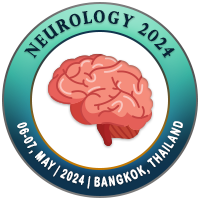
Mohiudeen Alikunju
Dubai Healthcare Authority, United Arab EmiratesTitle: Evaluating Clinical and Transthoracic Echocardiographic Predictors for Embolic Source on Transesophageal Echocardiography in Acute Stroke Patients: A Retrospective Study in a Tertiary Care Hospital
Abstract
Importance of the topic: Stroke is a major global health concern, associated with significant morbidity and mortality. Identifying the etiology of stroke is crucial to guide therapeutic strategies and to prevent recurrent events. Transesophageal echocardiography (TEE) can often uncover potential cardiac sources of embolism not detected by transthoracic echocardiography (TTE). However, the criteria for performing TEE, especially in patients with a trivial TTE, are not well-established. Identifying the predictors for embolic source on TEE would aid clinicians in decision-making and could potentially enhance stroke management and prognosis.
Research question, aims, and objectives: The study aims to answer the research question: "What clinical, laboratory, and imaging predictors suggest an embolic source on TEE in acute stroke patients with a trivial TTE?" Our objective is to explore these predictors, which could inform clinical decision-making and the need for TEE despite insignificant TTE findings.
Gaps in the literature: Current guidelines on the use of TEE in stroke management do not provide specific recommendations on when to proceed with TEE if TTE findings are incidental and do not warrant any treatment. This leads to variability in clinical practice, which may result in either missed cardiac sources of embolism or unnecessary use of TEE. Existing literature focuses primarily on the comparison of TTE and TEE findings in general but lacks specific focus on the predictors of embolic source on TEE, particularly in patients with a trivial TTE. Along with this we try to recognize the certain clinical aspects that would more likely predict the detection of a cardiac source of the stroke and hence require a need to undergo a trans esophageal echocardiography.
Research design: This retrospective study will review medical records from acute stroke patients who underwent both TTE and TEE over the past five years at our institution. Data to be collected includes patient demographics, clinical presentation, stroke subtype and severity, laboratory investigations, and TTE and TEE findings.
Importance and benefits of the study: This study holds potential benefits for both clinicians and patients. It could help guide decision-making regarding the use of TEE in acute stroke patients, ensuring appropriate use of resources, and potentially improving patient outcomes by identifying cardiac sources of embolism that would otherwise remain undetected. It could also stimulate discussion about revising current guidelines to include specific recommendations about when to use TEE, leading to more uniform and evidence-based care. Moreover, by pinpointing predictors of positive TEE findings, this study could contribute to the growing body of literature seeking to elucidate the complex relationship between cardiac conditions and stroke.
Biography
Mohiudeen AliKunju is an NRI who was born in Saudi Arabia and did his entire education in the UAE. Completed my Basic medicine from RAKMHSU and currently working as a Neurology resident.

